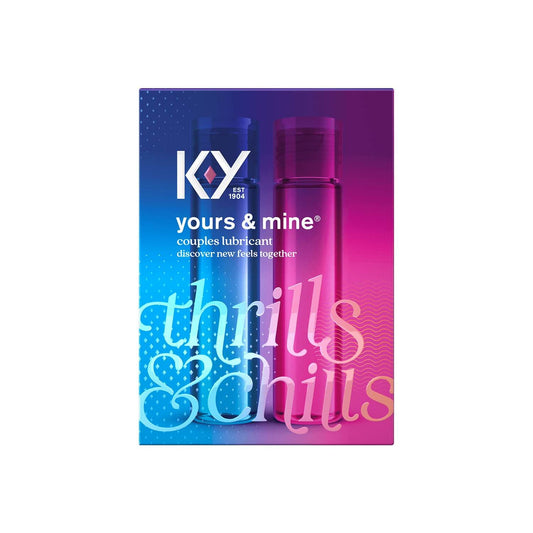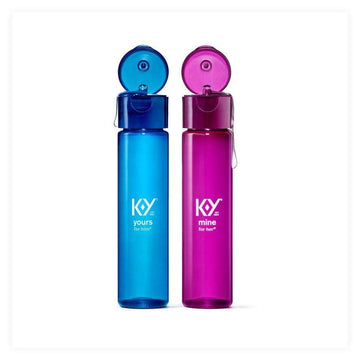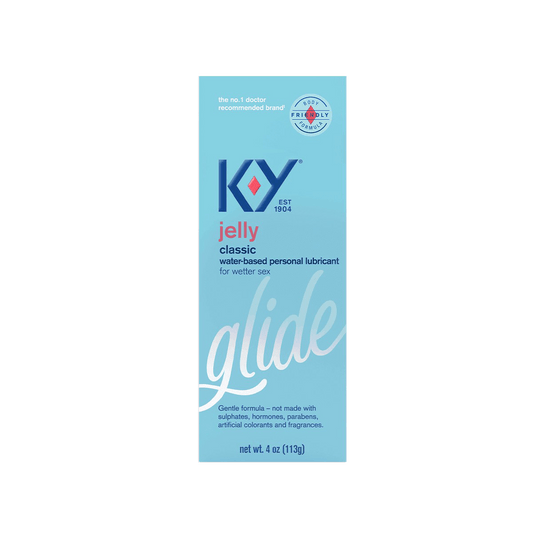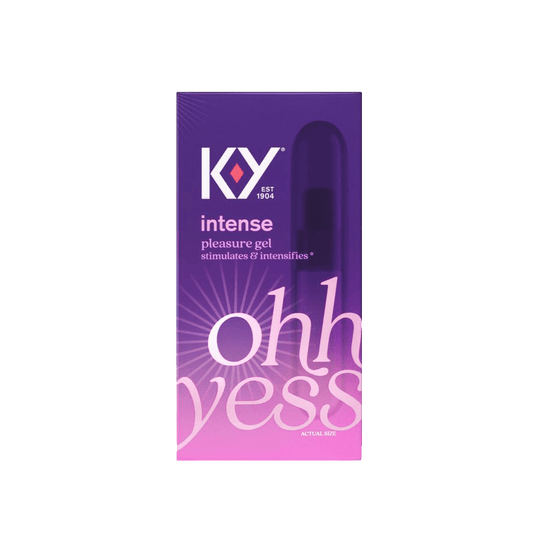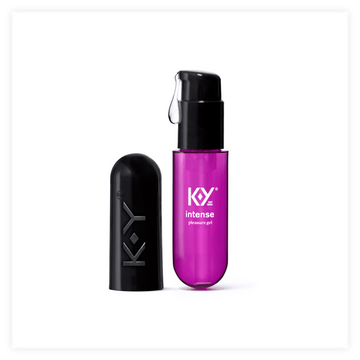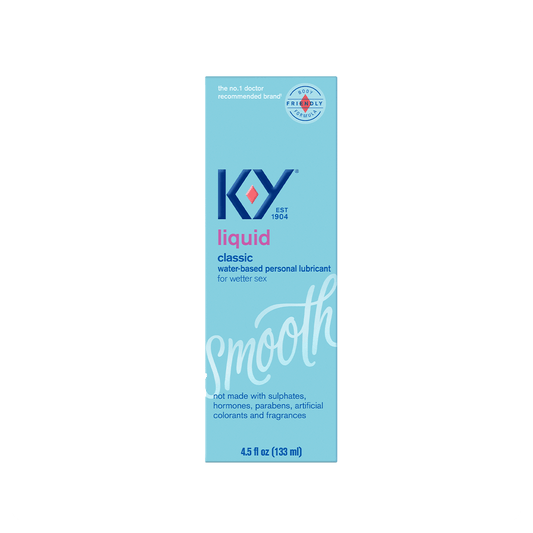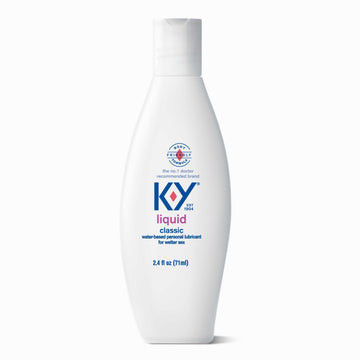Safe Words: Keep You and Your Partner Safe When You Play
Reader’s Note: Looking to explore BDSM or engage in roleplay or fantasy? It’s time to introduce a safe word. Safe words allow you and your partner to be on the same page about when it’s time to stop, pause, or reassess. Read on to learn everything you need to know about safe words.
Safe words aren’t just words you use to access private information online. They can also be crucial tools that allow you to safely explore new sexual frontiers. Safe words are agreed-upon words that enable you to quickly communicate to your partner during sex. They can be designated to mean anything you’d like, though they’re typically used to ask for an immediate pause, stop, or check-in.
If you’re looking to engage in sex that involves power play dynamics or simply looking for a safety net while you try new things, it may be time that you and your partner(s) introduce a safe word. Read on to discover everything you need to know about safe words—how to choose the right ones and how to effectively incorporate them into your sex life.
- What Is a Safe Word?
- Why Use Safe Words During Sex?
- How to Choose a Good Safe Word
- When and How to Use Safe Word
- Alternatives to Safe Words: Signals and Systems
What Is a Safe Word?
A safe word is like the pause button in the world of sex. It’s a designated word or phrase that immediately communicates someone’s needs. Prior to engaging in any sexual activity, all partners agree on a safe word and consent to behaving accordingly.
While safe words are often associated with meaning "stop," they can be designated to convey anything you need during intimate moments. A safe word can be used to signal the need to pause, slow down, reduce intensity, or communicate any other safety measure quickly and easily.
Safe words are most commonly used in BDSM, where power play occurs. Power play dynamics in sex involve any sort of defined power difference between two or more partners. One partner is typically dominant, whereas the other is submissive. Safe words help both partners remain safe, no matter the dynamics at hand.
The Importance of Safe Words in Consent and Communication
In more intense types of sex, such as BDSM, consent is crucial. While BDSM might appear aggressive, its core principle is that all participants are enthusiastically consenting. Consent is what distinguishes extreme sex from abuse.
A safe word is a central component to consent. It’s the word that conveys, “I no longer consent to continuing this activity.” Without a safe word, partners engaging in these types of sex may be crossing boundaries without realizing it.
Why Use Safe Words During Sex?
Wondering if a safe word might be right for your bedroom? Here are some scenarios in which you may want to incorporate one.
Enhancing Safety and Trust in BDSM and Role-Play
In the world of BDSM, also known as “kink,” pleasure is derived from activities that are not traditionally considered to be pleasurable. Sexual activities are often designed to be uncomfortable—or even downright painful.
BDSM isn’t just about physical sensations—it also focuses on power dynamics. At its core is the dominant/submissive relationship, where one partner takes control and the other submits. This can include role play scenarios where one partner pretends to resist or dislike what's happening, all as a way to heighten both partners' pleasure.
In intense scenarios like these, it's essential for all participants to have a clear way to communicate their needs instantly and without confusion. That’s where a safe word comes in. It ensures there's no ambiguity about whether a partner is just playing along or genuinely asking for a pause or stop.
Safe Words as a Tool for Boundaries and Comfort
Even if you’re not having extreme sex, a safe word may still be a useful tool for you and your partner. A safe word can offer a safety net to any partners who are exploring new sexual desires. They quickly, concisely, and clearly communicate a need—no questions asked.
How to Choose a Good Safe Word
Ready to choose your own safe word? These are our best tips for choosing one that’s effective.
What Makes a Safe Word Effective?
Imagine this: two partners are engaging in a dominant/submissive roleplay. They’ve agreed beforehand on a scenario in which the dominant partner will whip the submissive partner and the submissive partner will pretend that they don’t like it. According to their agreement, the submissive partner is screaming, “No!” and “Stop!” despite fully consenting to the scene and actually experiencing unbelievable pleasure.
Now, imagine the submissive partner does want to stop. Maybe it’s no longer feeling pleasurable or they need a break. How will the dominant partner know they actually want to stop, or they’re just playing into the fantasy?
A good safe word should be distinct from any other word you might say during sex. Common words like no, don’t, and stop simply won’t work. Additionally, a good safe word should be one that’s not easy to misinterpret. The more unique and random, the better.
Common Safe Word Ideas and Inspirations
Use the following safe word ideas and categories to inspire your safe word:
- Silly words: nutter butter, crocodile, pickle, snickerdoodle
- Movie-inspired: Hufflepuff, Jumanji, Sharknado
- Places: Oklahoma, Idaho, Oregon
- Romantic: rose petal, satin, cupid
The Traffic Light Method
Some couples find that they need multiple safe words: stop, slow down, and more (often considered a “go word”). In these scenarios, many opt to use the stoplight system:
- Green: I like that, everything is okay, keep going
- Yellow: Slow down
- Red: Stop
When and How to Use Safe Word
Ready to start using your safe word? Here’s what to do.
Establishing Safe Words Before Play
Before any sort of play begins, it’s a good idea to remind each other of your safe word and agree on what exactly it means. When someone says “nutter butter,” does that simply mean stop or just go slower? This should all be determined before engaging in any sexual activity.
It’s also important to remind any new partners of your safe word. If you’re inviting an additional or new person into play, they need to know the rules, too. You can either let them know your safe word or decide on a new safe word altogether. No matter what, everyone needs to be clear on the word and its definition.
What to Do When a Safe Word Is Used
It's simple: stop immediately and respect it. This is where your planning comes into play. The whole point of a safe word is to immediately and concisely convey a specific need. If a safe word is said, don’t ask any questions. Simply do whatever it is you agreed upon. If the safe word means stop, stop now.
Alternatives to Safe Words: Signals and Systems
In some situations, a verbal safe “word” simply won’t be effective. Let’s explore some non-verbal safe word methods.
Non-Verbal Safe Signals for Noisy or Quiet Situations
Depending on the scenario you and your partner have agreed upon, it may not be possible to say a safeword. Power play may involve a participant staying silent, you may be in a noisy space, or play may incorporate gags or other items that suppress noise.
In these scenarios, a non-verbal signal can be used as a “safe word.” As with safe words, this signal should be clear and distinct, not something you would typically do during sex. It should also include some sort of noise or physical contact with your partner. Something like a hand signal could easily be missed.
Consider the following safe signal ideas:
- Tapping on your partner an agreed-upon number of times
- Squeezing your partner an agreed-upon number of times
- Snapping or clapping
Some partners also find that it works best for the submissive partner to hold an object during play. If they drop the object, that engages the safe signal.
Creating a Safe System That Works for You and Your Partner
There is so much to explore in the world of sex. The only rules are that you must do so consensually. Safe words are easy ways to create a safe and consensual space in which all partners’ needs are met and respected. By following these guidelines, you and your partner safely explore and try new things.



